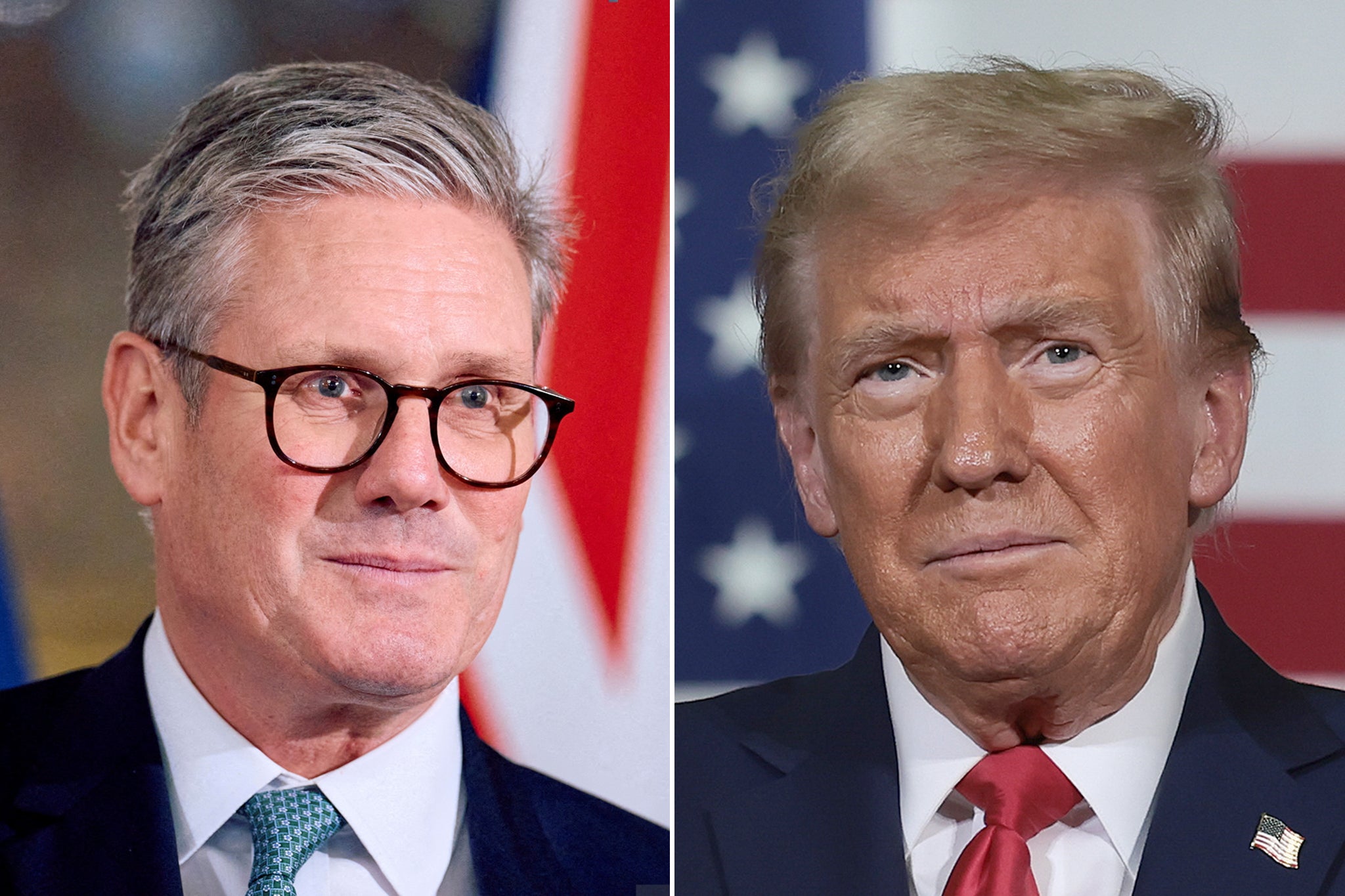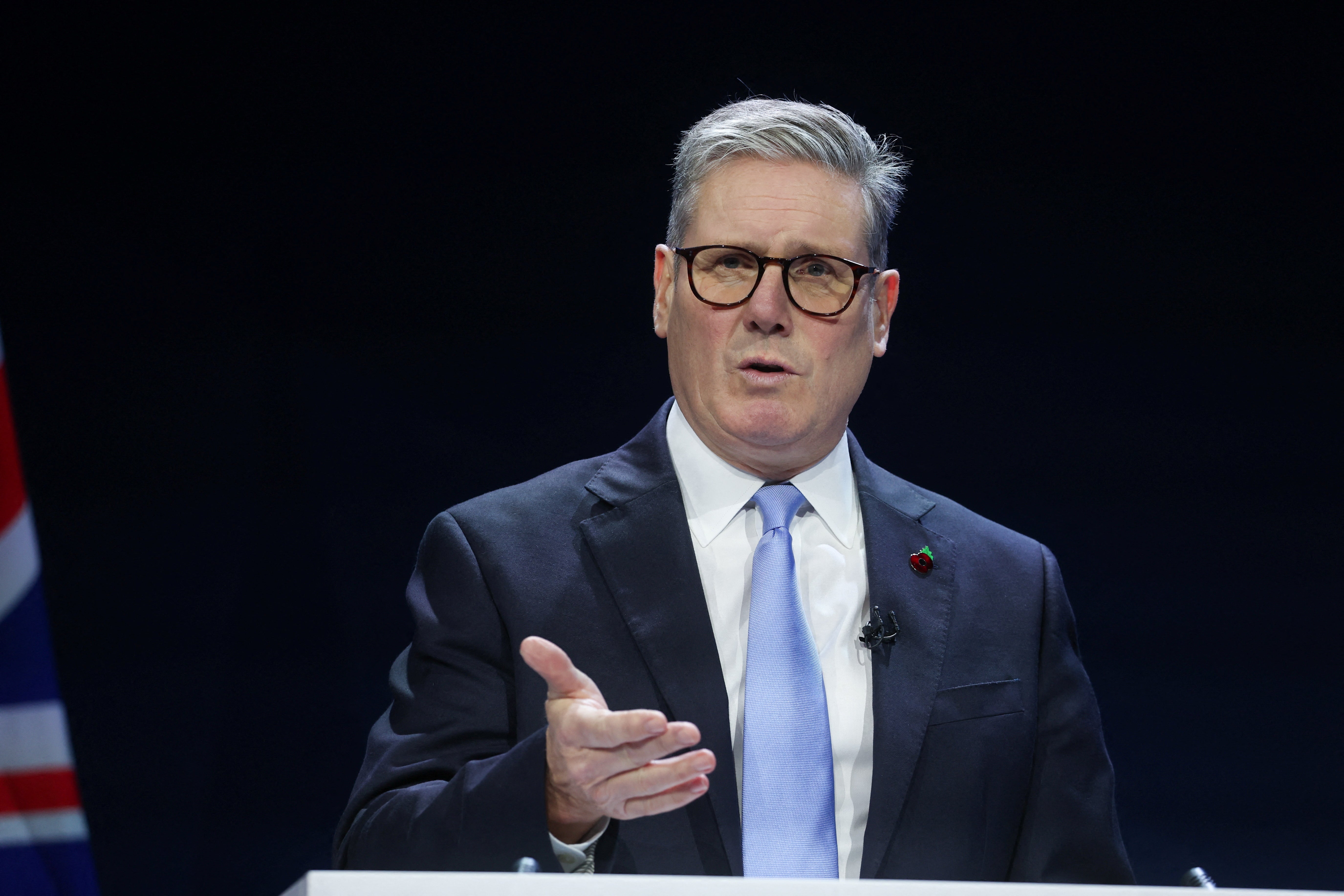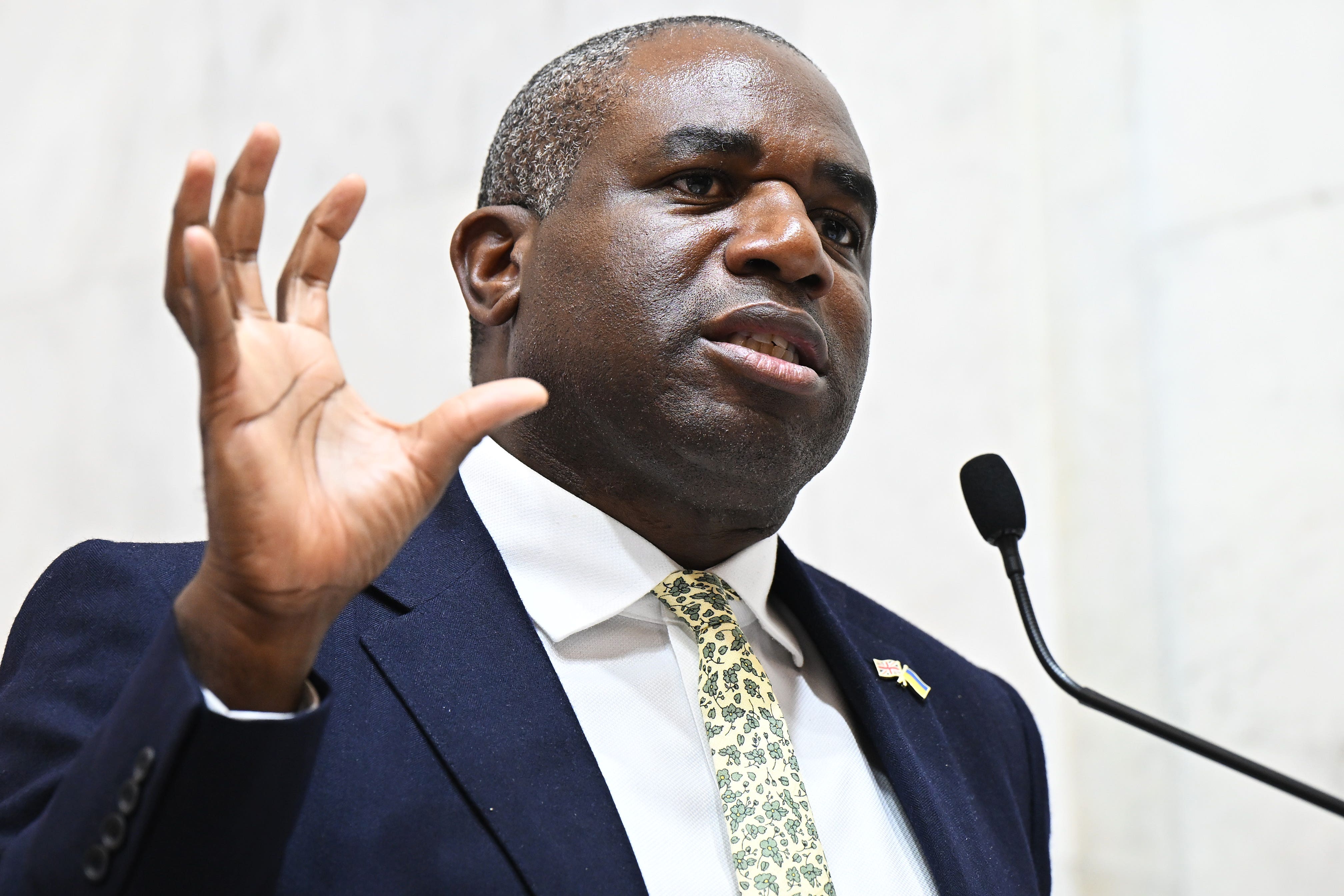Donald Trump has won the 2024 US election, securing a second presidential term many thought impossible just a few months ago.
Taking to the stage for a victory speech before the announcement, Mr Trump pledged his second presidency would be a “golden age for America.”
Reaction in the UK has been mixed. The government has broadly welcomed the news, with Keir Starmer congratulating the president-elect in the hours before his victory was officially announced.
“I look forward to working with you in the years ahead,” he said, adding: “I know that the UK-US special relationship will continue to prosper on both sides of the Atlantic for years to come.”

Other political reaction has been more critical, with Liberal Democrat leader Ed Davey calling the result “a dark, dark day for people around the globe.”
“Millions of Americans – especially women and minorities – will be incredibly fearful about what comes next. We stand with them.”
Sir Keir’s more enthusiastic embracement of the president-elect’s victory may be seen as a necessary political move by some. The prime minister has expressed a desire to maintain the UK’s strong relationship with the US during his time in power, saying earlier in the year he would work with either candidate.
However, the Labour leader has not always been so diplomatic towards the 45th – and now 47th – US president.
Here’s what the prime minister has said about Mr Trump over the years:
‘Absolutely repugnant’
Sir Keir has not always considered his words as carefully as he does now when it comes to the president-elect. He first spoke about Mr Trump in January 2016, debating in Commons a petition which called for the US politician to be banned from the UK.
Addressing the House less than a year before Mr Trump’s first presidential victory, Sir Keir said: “We are united in condemning the comments of Donald Trump on issues such as Mexican immigrants, Muslims and women.”
He went on to call comments made by Mr Trump “absolutely repugnant,” adding that “for me, his views edge towards treating a whole community as a suspect community.”

“Of course I would not want to have Donald Trump round for dinner to express his views,” he added, but said that he did not think the threshold had been met for him to be banned from the country.
The then-shadow home secretary said: “I would invite him to [my constituency] —at the end of a long list—to meet my constituents, because mine is an incredibly diverse and multicultural community.”
“In the end, we should be guided by our own values, not his. Our own values include a deep belief in freedom of speech and in multi-faith and diverse societies in which everyone feels secure and respected.”
‘Dishonesty and division’
The years following Trump’s election in 2016 saw Sir Keir continue to take digs at the president, both in Jeremy Corbyn’s shadow cabinet and as leader of the opposition.
In June 2018, he tweeted: “Humanity and dignity. Two words not understood by President Trump,” referring to footage of children detained in cages at US immigration centres.
The following year, he said: “An endorsement from Donald Trump tells you everything you need to know about what is wrong with Boris Johnson’s politics.”
Humanity and dignity. Two words not understood by President Trump. A truly ‘great country’ treats all people with humanity and dignity. https://t.co/GvmpgpkJIy
— Keir Starmer (@Keir_Starmer) June 19, 2018
Sir Keir went on to take issue with Conservative plans to “sell off the NHS to Donald Trump’s America,” the president-elect’s “farce” peace plan for Israel and Palestine, and Dominic Cummings action during lockdown, which he called “the tactics of Donald Trump.”
Commenting on Joe Biden and Kamala Harris’ victory in the 2020 US election, Sir Keir said: “their victory is one for hope and unity over dishonesty and division.”
“It is a chance to reassert America’s place as a force for good on the world stage,” the Labour leader added.
‘The closest of allies’
The prime minister did not appear to pay much mind to Trump during the four years of Joe Biden’s presidency. However, towards the end of the Democrat’s term, he began to adopt a much more diplomatic approach.
Speaking in May after Mr Trump was convicted of 34 felony counts, Sir Keir acknowledged that it was “an unprecedented situation. There’s no doubt about that.”
“Ultimately, whether he’s elected president will be a matter for the American people and, obviously, if we’re privileged to come in to serve, we would work with whoever they choose as their president.”
But, he added: “we would work with whoever [the American people] choose as their president.”

A few months later, and fresh from his election victory, the prime minister met Mr Trump in New York for a two-hour dinner. He was accompanied by foreign secretary David Lammy, who himself has previously called the president-elect a “neo-Nazi-sympathising sociopath.”
Sir Keir also later deflected allegations from the Trump campaign that Labour had undertaken unlawful electoral interference by providing support to Ms Harris’ campaign, saying that he and Mr Trump still had a “good relationship.”
Now, the prime minister has delivered an unqualified congratulatory message to Mr Trump, calling his victory “historic” and reaffirming his desire to remain “the closest of allies.”







